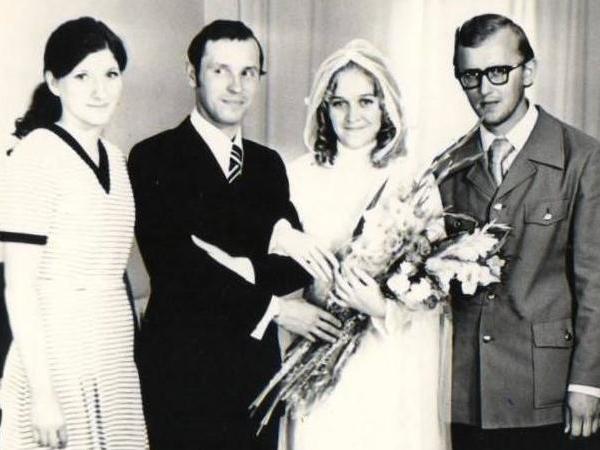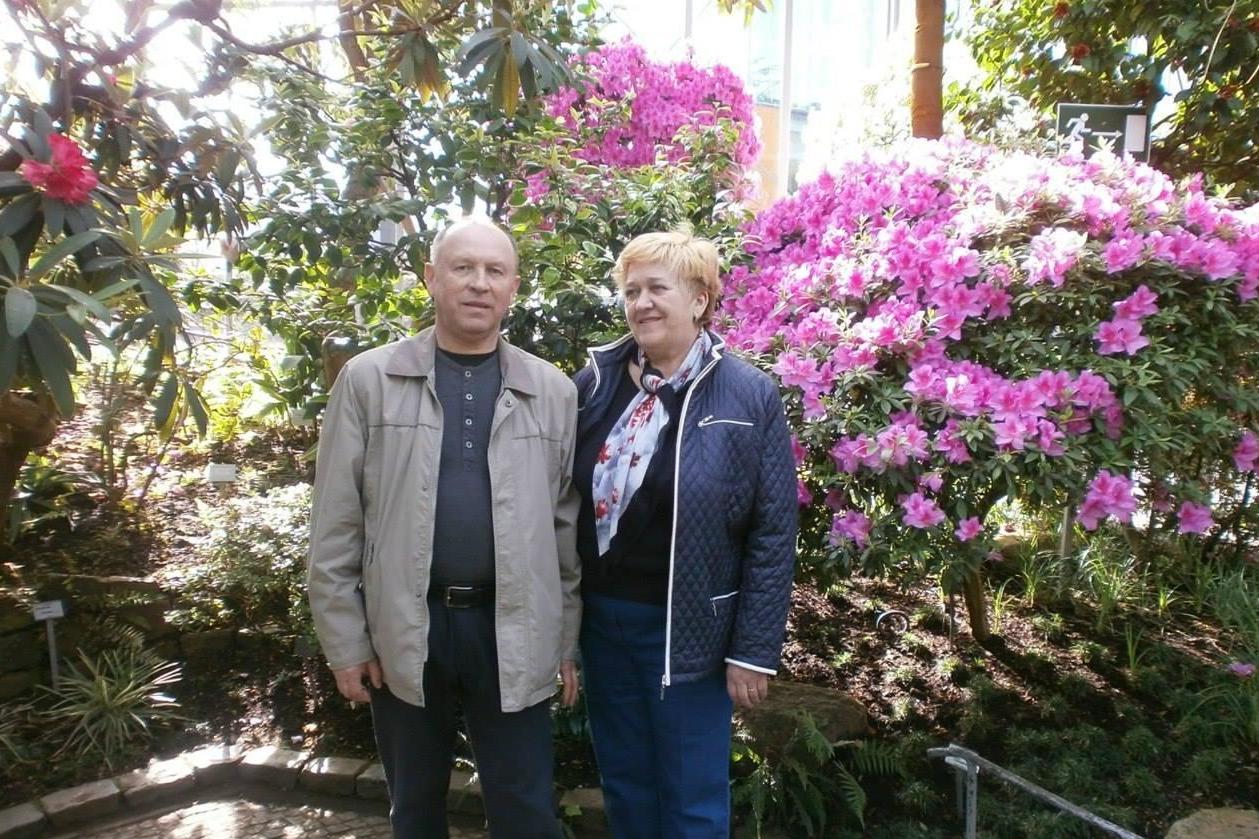Man refused UK visa to visit newborn grandson because he did not send photo of 1975 wedding
Exclusive: Stepan Polyakov denied entry to Britain despite providing copy of marriage certificate

A Russian man who wanted to visit his newborn grandson in the UK has been refused entry because the Home Office did not believe he was married to an EU citizen and was therefore ineligible for a permit.
Stepan Polyakov, 68, said he was “shocked” when his application for a European Economic Area (EEA) family permit to see his daughter, Natalja, who has permanent residence in the UK, was denied.
An EEA family permit allows citizens from countries outside the EEA to enter the UK for up to six months, if they are a family member of a citizen in the EEA or Swiss national.
Mr Polyakov married his wife Anna, 64, who is German, in 1975 and the couple live together in Syktyvkar, the capital of the Komi Republic, Russia.
In July this year, he sent over a copy of his marriage certificate as evidence of their relationship – as recommended by the government’s official advice for applicants – and a letter from his daughter to support the application.
However, My Polyakov’s application was refused by the Home Office.
In the refusal letter, an official noted the marriage certificate, but stated: “You have not provided any photographic evidence of your wedding day. This leads me to doubt that the marriage actually took place, as claimed.”
The letter also questioned the validity of their relationship.
“You have submitted no evidence of your relationship. Given you state that you have been married for 43 years, I would expect this to be normally present in a genuine and subsisting relationship,” the official said.
Mr Polyakov says he was not asked to submit any wedding photographs during his application.

“I was shocked by the decision. Initially, I thought it was a bad joke that we are accused of a sham marriage, given that we are together for 43 years and going to the UK to visit our daughter and her newborn son,” he said.
“How wedding photos could be a better proof than the marriage certificate beggars belief.”
The refusal letter directly contradicts the Home Office’s guidance for EEA family permits, which states that when a marriage of convenience is suspected, “the burden of proof is high” and rests with the government official.
The guidance goes on to say officials should not consider a marriage of convenience in cases where “there is a child of the relationship [and/or] there is evidence to suggest cohabitation”.
The refusal also incorrectly claimed Mr Polyakov lived in Germany with his wife, despite the application stating they live in Russia.
To overturn the decision, Mr Polyakov would have to take an expensive 800-mile journey to Moscow to re-apply or appeal the ruling, which he said could take almost a year.
“We wanted to visit our new-born grandson as soon as possible,” he said.
“At this stage they grow so fast and the young parents especially need our help now, in these first few months.”
Chai Patel, a Legal Policy Director for the Joint Council for the Welfare of Immigrants, said it was “simply disgraceful” that the Home Office did not accept the marriage certificate as evidence without wedding photographs.
“Why on earth should people have to send photographs of their happiest day to our most hapless and incompetent governmental department, when the primary purpose of a marriage certificate is to evidence the existence of a marriage?” Mr Patel said.
After The Independent asked the Home Office to comment on Mr Polyakov’s case, Dmitry Adamskiy, his son-in-law, said he received an email from the UK Visas & Immigration decision making centre asking for additional documents to re-assess the case.
A Home Office spokesperson told The Independent: “We are in touch with Mr Polyakov to request extra documentation which will allow us to review his application.”
It is unclear at this time whether the refusal will be overturned.
Join our commenting forum
Join thought-provoking conversations, follow other Independent readers and see their replies
Comments